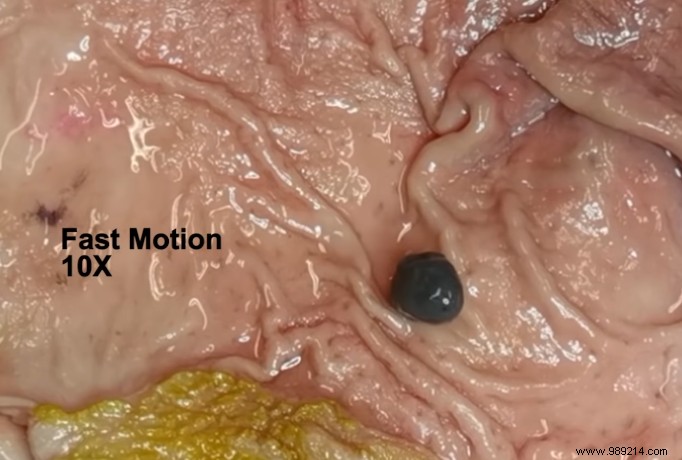Researchers in Hong Kong have developed a new spray that can turn objects of a few millimeters into "robots". Guided by magnetic fields, these could facilitate the administration of drugs or the insertion of a catheter.
A spray capable of transforming very small objects into airship robots in the body, such is the innovation of a team from the Municipal University of Hong Kong (China) . In a statement released on November 19, 2020, the scientists described their "M-spray". Biocompatible, it is intended for health applications. It is a coating made up of polyvinyl alcohol (PVA), gluten and iron particles. The latter can be applied to any surface to obtain a layer with a thickness of 0.1 to 0.25 mm.
It is possible to spray M-spray on many medical objectswithout risking altering their shape and their size. These same objects are then magnetized using one or more magnetization directions before the coating is heated to achieve solidification.
Scientists conducted tests by combining different forms and directions of magnetization. They were thus able to observe the possibility of guiding these "millirobots" thanks to a magnetic field. In addition, robots can adopt different modes of locomotion . Indeed, the experiments have made it possible to crawl a cotton thread, roll a pipe or even walk an origami. You should also know that it is possible to reprogram the mode of locomotion of the robots. It is enough to simply apply a sufficiently strong magnetic field.
When the object finds its final position, an oscillating magnetic field takes care of disintegrating the coating . The latter is then naturally evacuated by the body. This disintegration takes just 8 minutes in an acid medium. This time can be extended to 15 minutes by adding a layer of PVA, or even 30 minutes by replacing the iron with nickel.

Researchers believe that M-spray may be used for the purpose of guiding the insertion of a catheter (or a sensor), or even facilitate the delivery of a drug to a specific area of the body. Moreover, the leaders of the study successfully performed a test of administering a drug in the stomach of a rabbit.
This innovation finally recalls that of the University of Exeter (United Kingdom) in 2018. The researchers had developed small drones resembling spermatozoa, equipped with a magnetic head and a tail to administer drugs in a targeted way.
Here is a video presenting the project: